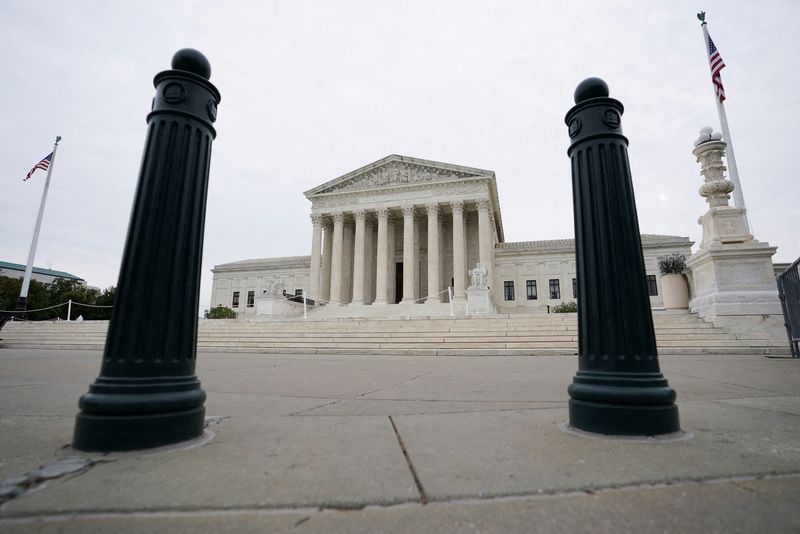By Andrew Chung
(Reuters) -The U.S. Supreme Court on Thursday curbed state and local governments from seizing and selling the homes of people with unpaid property taxes and keeping the proceeds beyond the amount owed, deeming the practice unconstitutional in a ruling in favor of a 94-year-old woman who battled tax authorities in Minnesota.
The justices ruled 9-0 in the property rights case to overturn a lower court's decision to throw out Geraldine Tyler's proposed class action lawsuit accusing Hennepin County, which contains Minnesota's most-populous city Minneapolis, of violating her rights under the U.S. Constitution's Fifth Amendment.
The Supreme Court agreed with Tyler's view that the county violated the Fifth Amendment's bar on the uncompensated taking of private property by a government for public use, a provision known as the "Takings Clause."
Tyler had owed roughly $15,000 in property taxes, including interest and fees. The county foreclosed on her home and in 2016 sold it at auction for $40,000, keeping the balance for its own use.
"A taxpayer who loses her $40,000 house to the state to fulfill a $15,000 tax debt has made a far greater contribution to the public fisc than she owed," Chief Justice John Roberts wrote for the court.
"The taxpayer must render unto Caesar what is Caesar's, but no more," Roberts added.
Under Minnesota's tax regime, the state takes "absolute title" of a property if an owner fails to pay property taxes for five years. Under the system, counties may keep any tax-delinquent property for a public purpose or sell it to other government entities or private buyers. After covering expenses, any remaining proceeds are given to the local school district, city and county. None is refunded to the former owner.
"I'm happy about what this win will mean for a whole lot of people, but especially seniors who would otherwise lose their savings and be put out on the street," Tyler said in a statement released by the Pacific Legal Foundation conservative legal group, which represented her.
"Today's decision is a major victory for property rights in the United States," said Christina Martin, an attorney with the group. "The court's ruling makes clear that home equity theft is not only unjust, but unconstitutional."
Tyler's lawyers said in a court filing that 13 other states have similar policies that let government or private investors benefit when collecting delinquent property taxes.
"Hennepin County represented the interests of Minnesota and many other states with laws that transfer title of abandoned property to reduce the burden to the public," Assistant County Administrator Dan Rogan said. "Hennepin County will work closely with the Minnesota Legislature to create a process that is consistent with the Supreme Court's decision."
In 2010, Tyler moved out of her one-bedroom condominium in Minneapolis and into an apartment building for elderly people. She then stopped paying taxes on the condo. The county said she refused other options to recoup the equity in her condo, including selling it, refinancing her mortgage or signing up for a 10-year tax payment plan.
Retaining the excess value of her home beyond the tax debt constituted a "$25,000 windfall for the public" at her expense, Tyler's lawyers had argued.
The county said that, far from a windfall, tax forfeitures "do not break even." States have long permitted forfeitures of an entire property for neglecting to pay taxes, which are a reasonable condition of property ownership, the county said.

The St. Louis-based 8th U.S. Circuit Court of Appeals last year upheld a judge's dismissal of the case.
President Joe Biden's administration had backed Tyler's claim that the county engaged in an unconstitutional taking.